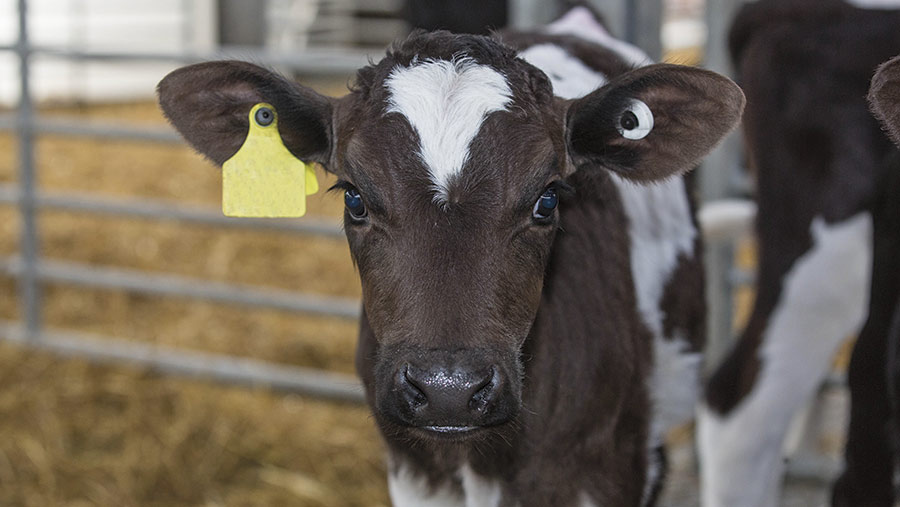Crypto could cost £200 a case: here’s how to deal with it
 © Tim Scrivener
© Tim Scrivener Cryptosporidium outbreaks in beef calves can cause weight losses of up to 38kg and cost producers up to £200 a case, research has shown.
Crypto is a parasite that causes scour and is spread via oocysts, which can survive in the environment for years unless properly cleaned. There is no vaccine to protect against it.
PhD student Hannah Shaw, from Moredun Research Institute, carried out an AHDB-funded trial in Scotland on a beef unit that had a history of clinical crypto disease and was suffering from up to 30% losses.
See also: How to prevent and treat cryptosporidiosis in calves
She compared calves with severe clinical disease to those with none, allocating each animal a score before 16 days old, depending on the severity of their symptoms.
These scores were then compared with weight gain over a period of six months, from birth to sale.
How the scoring worked:
- Calves were given a faecal consistency score ranging from firm (0) to loose and sifts through bedding (3)
- They were also given a score for their demeanour ranging from standing, happy to rise, inquisitive with normal eyes and ears (score 0) to unable to rise, lethargic, sunken eyes, droopy ears and low body condition score (5).
Results showed calves that had high scores (clinically severe) were on average 38kg lighter than calves that had low scores at six months of age.
At £2.70/kg liveweight (the average price that the farmer was receiving at the time of the study), a calf that was 38kg lighter would be worth £102.60 less than one with no clinical disease, Miss Shaw calculated.
Miss Shaw also compared the effectiveness of seven disinfections in killing crypto oocysts. Preliminary data revealed freshly made 3% hydrogen peroxide disinfectant resulted in a kill rate of almost 100%, closely followed by Kenocox and Neopredisan 135-1.
“Disinfectants lose efficacy over time if they sit made up,” she warned, advising farmers to therefore use from fresh.
Cost breakdown: £200+/clinical case |
|
| Vet callout | £24.00 |
| Crypto test | £14.66 |
| Vet time on farm | £18.33 |
| Halocur | £14.00 a calf |
| Electrolytes | £45.00 a calf |
| Lost liveweight revenue | £102.60 |
| Total | £218.59 |
Advice for controlling cryptosporidiosis
- Steam clean pens and calving areas at 60C to deactivate oocysts followed by disinfectant. Disinfectant alone is less effective.
- Deep litter pens with straw to reduce faeces contamination.
- Feed 3 litres of quality colostrum within two hours of birth followed by a similar feed within 12 hours of birth.
- Halacour is the only licensed product for crypto. It contains the active ingredient Halofuginone, which is a coccidiostat and works by reducing the rate of replication.
- When crypto is a known problem, Halocur should be used to reduce spreading for seven consecutive days from birth. However, it should not be given to calves that are already sick or rehydrated. It is also toxic, so birthweights should always be taken to ensure the correct amount if given.
- Scouring calves must receive one to two extra feeds of 2 litres of oral rehydration solution, given independently of milk.
- Sick animals should be quarantined for one week after scouring stops as oocysts can still spread.
(Source: AHDB, Shropshire Farm Vets and Moredun).
